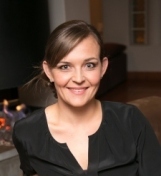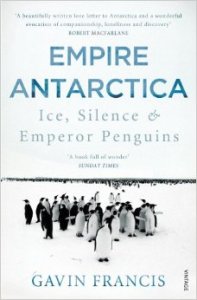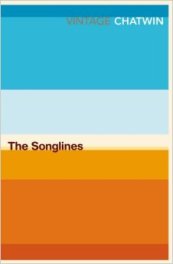I follow the blog and email newsletter Writers Write, and a while ago Mia Botha posted this (which I’m repeating in toto because it’s such an interesting exercise to do):
 How To Own Your Story
How To Own Your Story
One of the first things we do on a Writers Write course is ask you to list the last five books that you have read. The rule (of the very big thumb) being that you will probably write what you like to read. I always smile when people list all these wonderful literary works, Pulitzer Prize winners, and Man Booker Prize winners, and then somewhere, usually around number four, they add something like a good old bodice-ripping romp. This is always done with a lot of blushing and explanations like, ‘It’s a fun read’ and ‘It’s for when I really need to relax’…
Why are we embarrassed by these books? I like reading and writing romance, but it is frowned upon. The books are supposedly badly written, with unrealistic plots and flat characters. And I agree, some of them are atrocious, but it has nothing to do with the genre. I have come across the same problems in all genres, including the literary ones. Bad writing is bad writing in any genre.
One of our biggest obstacles to overcome as writers is fear. We have enough holding us back. I love this quote by Stephen King: “I have spent a good many years since―too many, I think―being ashamed about what I write. I think I was forty before I realized that almost every writer of fiction or poetry who has ever published a line has been accused by someone of wasting his or her God-given talent. If you write (or paint or dance or sculpt or sing, I suppose), someone will try to make you feel lousy about it, that’s all.”
Well said, Stephen, but it is easier said than done.
Try this exercise:
- List the last five books that you have read.
- Write down the genre of each.
- Write down what viewpoint it was written in.
- What timeframe was it set in? Past, present, future?
- Gender of the protagonist.
- What did you like or dislike about them?
- Gender of the antagonist.
- What did you like or dislike about them?
- Description: Too much, too little.
- Dialogue: Good, bad, too much, too little.
- Setting: Was the setting integral to the plot?
- What was the inciting moment?
- Identify the three surprises or twists.
- Identify the friend and love interest.
- What did you like and dislike about the book?
Spot the similarity. Even if every book was written in a different genre or if they seem completely random you will find similarities that will echo in your writing. Maybe three had female protagonists and two were male, but what was a commonality between them? Were they all detectives? Were they all strong leaders? Did they refuse to give up? Pull the books you read apart. Dissect them. What did you love about them? What kept you turning the page?
Life is too short to write stories that don’t excite us. Write what you love, not what you think your mother, your professor, your spouse or your friends expect you to write. Forget about the opinions of others. Silencing your internal critic is hard enough. Don’t let them take the joy out of your writing (or reading). — Mia Botha.
So I did the exercise on the last five books I had read and (working laterally, ie applying the questions in such a way that they elicited the best result for me), I got this result:
Creating Autoethnographies by Tessa Muncey 
Write down the genre.
- Academic self-help
Write down what viewpoint it was written in.
- First person
What timeframe was it set in? Past, present, future?
- Present
Gender of the protagonist.
- Female – woman making her way into research at a late stage.
What did you like or dislike about them?
- The courage and bravery of telling one’s own story. The highly pedantic nature of the writing. Signposted to the nth degree, give your reader some credit! The defensive tone of the writing.
Gender of the antagonist.
- The hostile male, positivist academic world.
What did you like or dislike about them?
- Hate them! And want to understand them better.
Description: Too much, too little.
- Too much of certain kinds and not enough of other kinds – I’d like to understand more about what makes certain things entrenched in academia.
Dialogue: Good, bad, too much, too little.
- I felt talked at and outpoured on.
Setting: Was the setting integral to the plot?
- Totally – academia.
What was the inciting moment?
- The recognition of the self in research.
Identify the three surprises or twists.
- That this author hasn’t yet found (or made) a space she is really comfortable in.
Identify the friend and love interest.
- Knowledge which allows a person to see themselves in it.
What did you like and dislike about the book?
- I admire her courage and her struggle.
- I didn’t like the tone.
 Pondlife by Al Alvarez
Pondlife by Al Alvarez 
Write down the genre.
- Diary
Write down what viewpoint it was written in.
- First person
What timeframe was it set in? Past, present, future?
- Very recent past 2002-5 (but written in present)
Gender of the protagonist.
- Male – man getting older and older; life guards (all male); cormorants, swans, seagulls.
What did you like or dislike about them?
- The simple recording of bodily breakdown and daily events without shame or artifice.
- The narcissism of assuming that because you’re already a highly published author your daily life is intrinsically interesting. I wanted more observation of the relationship to the birds and not to take for granted their presence.
Gender of the antagonist.
- The mostly male literary world of London.
What did you like or dislike about them?
- Hate them! And want to understand them better.
Description: Too much, too little.
- Lots about water which was lovely, too little about pondlife, too repetitive about the body.
Dialogue: Good, bad, too much, too little.
- A bit more introspection needed
Setting: Was the setting integral to the plot?
- Totally – Hampstead Heath ponds.
What was the inciting moment?
- Needing to swim to stay alive.
Identify the three surprises or twists.
- That despite decrepitude, swimming and sex are still possible for Al Alvarez. That winter and real cold give life and energy.
Identify the friend and love interest.
- Extreme swimming.
What did you like and dislike about the book?
- I like the courage to expose one’s daily life and to put on page an obsession. It needed harder work not to assume the reader would be fascinated because this is the writings of someone already famous.
At Swim Two Boys by Jamie O’Neill 
Write down the genre.
- Fictionalised history and politics
Write down what viewpoint it was written in.
- Third persons – several view points maybe about 5 (the two boys, a father, a wealthy woman and her nephew)
What timeframe was it set in? Past, present, future? 
- Past (1914 to 1916)
Gender of the protagonist.
- Four men and one woman – boys, homosexuals, frowzy middle-aged man, brave and daring single middle-aged woman.
What did you like or dislike about them?
- All the characters felt far away in time and place to me, but their lives were vivid and invoked through dialogue. The two boys were on the cusp on adulthood and full of life. The father was exasperating but full of love. The woman tangential to the story, so not clearly drawn, the nephew and his homosexuality border on predatory but gave insight into the criminalisation and danger of being like this at this time.
Gender of the antagonist.
- The mostly male English, the police.
What did you like or dislike about them?
- Hate them! And want to understand them better.
Description: Too much, too little.
- Brilliant and amazing: the right degree of tantalising and evocative.
Dialogue: Good, bad, too much, too little.
- Completely brilliant.
Setting: Was the setting integral to the plot?
- Totally – Dublin and a sea pool.
What was the inciting moment?
- The pact to swim to the rock on the day the Easter revolution happened.
Identify the three surprises or twists.
- That the boys miss the revolution almost entirely, that homosexuality saturates the book, that the story ends badly.
Identify the friend and love interest.
- Homosexual love.
What did you like and dislike about the book?
- I liked the world it took me into. It was complex, layered and rich.
Empire Antartica by Gavin Francis 
Write down the genre.
- Nonfiction journey travel
Write down what viewpoint it was written in.
- First person
What timeframe was it set in? Past, present, future? 
- Recent past (written in past tense)
Gender of the protagonist.
- Male – the doctor, animal – the penguins, auks, terns, albatrosses, Antartica, the winter, the dark.
What did you like or dislike about them?
- His withdrawn and reserved nature, his observations and obsessions. His withdrawn nature, I wanted more poetry and grit to this experience. Relationship to the animals very powerfully observed and related.
Gender of the antagonist.
- Antarctica, the winter, the dark, a leopard seal, death.
What did you like or dislike about them?
- Fascinated by them.
Description: Too much, too little.
- Very very good – place and animals very powerful.
Dialogue: Good, bad, too much, too little.
- Very little but neither Gavin nor I were much interested in the human inhabitants of the book.
Setting: Was the setting integral to the plot?
- Totally – Halley base, Antartica.
What was the inciting moment?
- Visiting the penguins in the depth of winter when they were incubating eggs.
Identify the three surprises or twists.
- That the dark and cold can be missed.
Identify the friend and love interest.
- Penguins and other birdlife that one can only find by going to extremes.
What did you like and dislike about the book?
- Extremity fascinates, the otherness of animals fascinate, so we had much in common.
Songlines by Bruce Chatwin 
Write down the genre.
- Nonfiction journey travel
Write down what viewpoint it was written in.
- First person
What timeframe was it set in? Past, present, future? 
- Fairly recent past
Gender of the protagonist.
- Male – professional journey maker and writer. Aboriginal Australians.
What did you like or dislike about them?
- His reserve as a character, his observation, his conversations, his interactions. His dumping his unprocessed notes and ideas into the middle of the book. Aboriginals as veiled characters, unknowable, watched but not really known.
Gender of the antagonist.
- Those who don’t understand/exploit aboriginal peoples.
What did you like or dislike about them?
- Hate them/fascinated by them.
Description: Too much, too little.
- Very very good – place and atmosphere very powerful.
Dialogue: Good, bad, too much, too little.
- Lots and well done.
Setting: Was the setting integral to the plot?
- Totally – the Australian interior, small forgotten towns.
What was the inciting moment?
- The hunt for a kangaroo with a car.
Identify the three surprises or twists.
- That it is impossible to convey Aboriginal ideas in English, that aboriginal people are not necessarily noble, that Bruce Chatwin dumped a whole lot of regurgitated material into this book.
Identify the friend and love interest.
- Wandering, finding out, being in strange places.
What did you like and dislike about the book?
- Exploration, extremity, otherness, encounters.
- Again not to assume that the reader will put up with anything a famous person does and says and thinks.
My conclusions: I’m drawn to the first person and to struggles against the normative and hegemonic (which I want to understand better). I’m drawn to encounters with extremity and otherness as well as to brilliant descriptions of animals, water and swimming. That tone is important and relationship with the reader and that no matter how interesting the subject matter I want it written with attention to the writing. Taught me a lot about what I read and what I really want to be writing.

I really enjoyed this exercise. Its very interesting to see not only what other people read but what exactly they enjoy about books I would never dream of reading